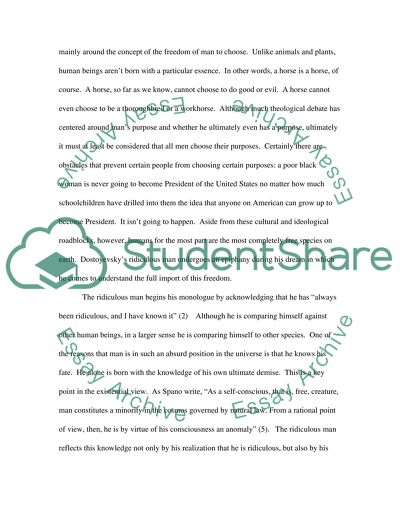Cite this document
(“The Ridiculous Man as Existential Hero Book Report/Review”, n.d.)
The Ridiculous Man as Existential Hero Book Report/Review. Retrieved from https://studentshare.org/philosophy/1512604-the-ridiculous-man-as-existential-hero
The Ridiculous Man as Existential Hero Book Report/Review. Retrieved from https://studentshare.org/philosophy/1512604-the-ridiculous-man-as-existential-hero
(The Ridiculous Man As Existential Hero Book Report/Review)
The Ridiculous Man As Existential Hero Book Report/Review. https://studentshare.org/philosophy/1512604-the-ridiculous-man-as-existential-hero.
The Ridiculous Man As Existential Hero Book Report/Review. https://studentshare.org/philosophy/1512604-the-ridiculous-man-as-existential-hero.
“The Ridiculous Man As Existential Hero Book Report/Review”, n.d. https://studentshare.org/philosophy/1512604-the-ridiculous-man-as-existential-hero.


